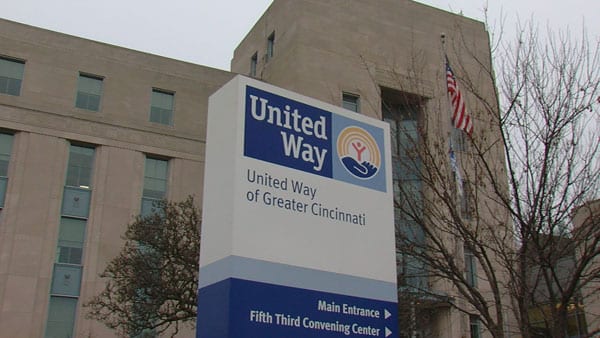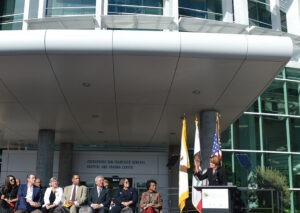
November 2, 2018; Cincinnati Enquirer
On Friday, November 2nd, the board of the United Way of Greater Cincinnati was due to meet after a week of upheaval marked by challenges to what was seen by various stakeholders as destructive and exclusionary racial dynamics.
It started with an announcement on Monday, October 29th, that Michael Johnson, its new—and first Black—CEO, would be voluntarily leaving his position in the waning days of the 2018 fundraising campaign. In a letter to the board, Johnson alleged he was being systematically undermined, subtly threatened, and humiliated by the board, and in particular by Julie Poston, the board chair. Poston then released a statement suggesting the board had “performance issues” with Johnson, proving his point to some extent.
Prominent Black community leaders in the city organized to call the UWGC to accountability. One said the character assassination was right out of a Cincinnati playbook used to keep Black leaders in line, while another commented that it was unlikely that the United Way could do anything of consequence when it came to poverty since it evidently didn’t understand the structural racism that it was, itself, reinforcing.
Cincinnati public school board member Ozie Davis says, “This idea that we can have a reduction of poverty and create equity without disrupting the very traditional racist systems that are prevalent in Cincinnati has to be challenged.”
Johnson resigned on Wednesday, announcing his intent to return to the Wisconsin Boys and Girls Club, where he had enjoyed a long and successful tenure. It is thought that he and the board came to a settlement, but the issues were far from settled. In the statement the board released about Johnson’s resignation, the board reiterated its support for Poston, and this did not sit well with stakeholders.
Sign up for our free newsletters
Subscribe to NPQ's newsletters to have our top stories delivered directly to your inbox.
By signing up, you agree to our privacy policy and terms of use, and to receive messages from NPQ and our partners.
On November 2nd, as the board arrived for an 8:00am meeting, the members were first met by members of staff bearing a letter demanding the resignation not only of Poston as board chair, but of the entire 13 member executive committee. The signers also took responsibility themselves for allowing the situation to persist.
We understand that we, as employees, are not blameless. We’ve spent many days as a team having tough conversations about how a situation such as this could occur when so many were thrilled at Michael’s arrival. Our team has come to recognize that we must speak up and not be silent. For United Way and its employees to help create the community free from racism, discrimination and implicit bias, we need to create an organization that is intolerant of these actions. Our organization must earn a seat at our community’s table, and we’re ready to start working to earn the trust of our city, starting with this letter.
The staff’s letter moved from a mea culpa to action steps:
There are some structural changes that need to occur to make sure we reflect the communities we serve. We will make sure our staff, volunteers, and board members take part in bias and cultural sensitivity training. We will ensure the composition of our board is reflective of the diversity we see in our communities. And, we will ensure that our organization sets in place metrics to ensure we are making progress in these areas. Lastly, to ensure transparency and connectedness between the board and employees, we are asking for board meetings to be opened to employees.
During the meeting, Poston submitted a letter of resignation where she stressed her belief in “diverse experiences” and how excited she was in the potential benefits of hiring Johnson back when she oversaw the search that led to his hiring. That letter’s delivery, however, was just prior to the arrival of a dozen activists and Black leaders who were looking to support the staff members by urging for Poston’s dismissal and other demands. The meeting was quickly adjourned after that.
Poston ended her week by telling the Cincinnati Enquirer that she was unable to speak more candidly and openly due to terms of the settlement agreement with Johnson. Meanwhile, United Way interim CEO Ross Meyer met with the activist group on Friday morning after the board ended its meeting.
“We want to get this right,” he told leaders from the community. “If we get this right here, it can have an impact on the larger community. I look forward to making this a moment of healing and learning for the community, and I need your help to do that.”—Ruth McCambridge













